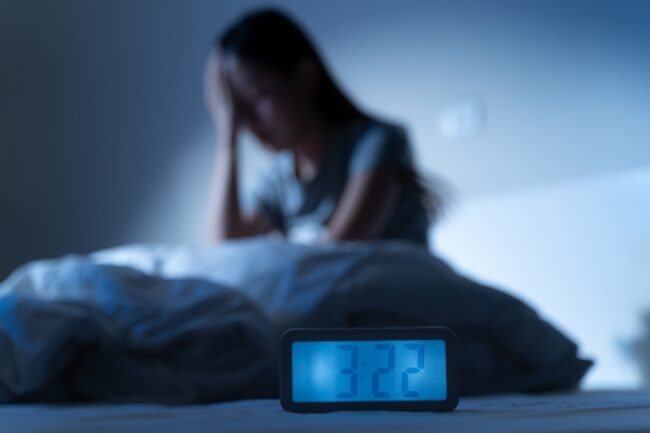Our bodies operate on an internal clock known as the circadian rhythm, which governs our sleep-wake cycles, feeding habits, hormone release, and other bodily functions. This roughly 24-hour cycle is influenced by external cues like sunlight and temperature. However, when this internal clock doesn’t sync with our environment or daily schedule, it can lead to circadian rhythm disorders. These disorders can affect sleep quality, mental health, and overall well-being. Sushil Gupta of Woodbridge delves into the nature of these disorders, their causes, symptoms, and potential treatments.
What are Circadian Rhythm Disorders?
Circadian rhythm disorders are disruptions in a person’s internal clock that lead to problems with sleep timing. These disruptions can cause individuals to sleep and wake at times that are out of alignment with societal norms and their own biological predispositions. Common types of circadian rhythm sleep disorders include:
- Delayed Sleep-Wake Phase Disorder (DSWPD): This disorder is characterized by a significant delay in the major sleep episode relative to the desired or socially acceptable time. People with DSWPD struggle to fall asleep until late at night and have difficulty waking up in the morning.
- Advanced Sleep-Wake Phase Disorder (ASWPD): Individuals with ASWPD have an advanced sleep phase, meaning they feel sleepy early in the evening and wake up unusually early in the morning.
- Irregular Sleep-Wake Rhythm Disorder: This disorder involves a lack of a clear, defined sleep pattern. Sleep is fragmented into at least three episodes during the 24-hour period, with no main nighttime sleep episode.
- Shift Work Disorder: This affects individuals who work nontraditional hours, like overnight shifts, early morning shifts, or rotating shifts. These work schedules conflict with the body’s natural circadian rhythm.
- Jet Lag Disorder: This temporary condition occurs when an individual travels across multiple time zones rapidly, causing their internal clock to be out of sync with the new time zone.
Causes of Circadian Rhythm Disorders
Circadian rhythm disorders can arise from various factors:
- Genetic Predispositions: Some individuals are genetically inclined towards an earlier or later sleep schedule.
- Environmental Cues: Inadequate exposure to natural light, too much exposure to artificial light at night, and highly variable light levels can disrupt the body’s circadian rhythm.
- Lifestyle Choices: Irregular sleep schedules, frequent travel across time zones, and work schedules that conflict with natural light-dark cycles can lead to disturbances.
- Medical Conditions: Certain neurological disorders, mental health issues, and medications can alter circadian timing and lead to sleep disturbances.
Symptoms of Circadian Rhythm Disorders
The most apparent symptom of circadian rhythm disorders is an abnormal sleep pattern. Other symptoms can include:
- Insomnia or difficulty sleeping
- Excessive daytime sleepiness
- Depression or mood swings
- Decreased alertness and impaired cognitive function
- General malaise or a feeling of being unwell
These symptoms not only affect an individual’s health but also their social life, work efficiency, and overall quality of life.
Diagnosis and Treatment
Diagnosis of circadian rhythm disorders typically involves a thorough medical history, a physical exam, and a detailed discussion of sleep habits. Tools such as sleep logs, actigraphy (a wearable device that tracks movement), and sometimes polysomnography (sleep studies) are used to analyze sleep patterns.
Treatment aims to realign the individual’s biological clock with the external environment. Strategies include:
- Light Therapy: Exposure to a light box that emits a specific type of light can help reset the body’s internal clock, particularly for those suffering from DSWPD or ASWPD.
- Melatonin Supplements: Melatonin is a hormone that regulates sleep-wake cycles. Taken in supplement form, it can help shift the circadian rhythm.
- Chronotherapy: This involves progressively delaying or advancing the time of sleep to shift the sleep phase to a more desired schedule.
- Sleep Hygiene Practices: Establishing a regular sleep schedule, reducing exposure to blue light before bedtime, and creating a conducive sleep environment can help manage and prevent disruptions.
- Medications: In some cases, doctors may prescribe medications to help induce sleep or stay awake during desired times.
Living with Circadian Rhythm Disorders
Managing a circadian rhythm disorder often requires lifestyle adjustments and ongoing management strategies. It’s crucial for individuals to maintain a consistent sleep schedule as much as possible and to adapt their environment to support their sleep needs. For those with shift work disorder or frequent travelers, more dynamic strategies may be necessary.
Circadian rhythm disorders can pose significant challenges, but understanding and addressing them can lead to improved sleep, better health outcomes, and enhanced overall well-being. By recognizing the signs and symptoms and seeking appropriate treatment, individuals can regain control over their sleep patterns and align their internal clocks with their daily lives.
